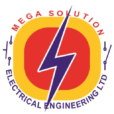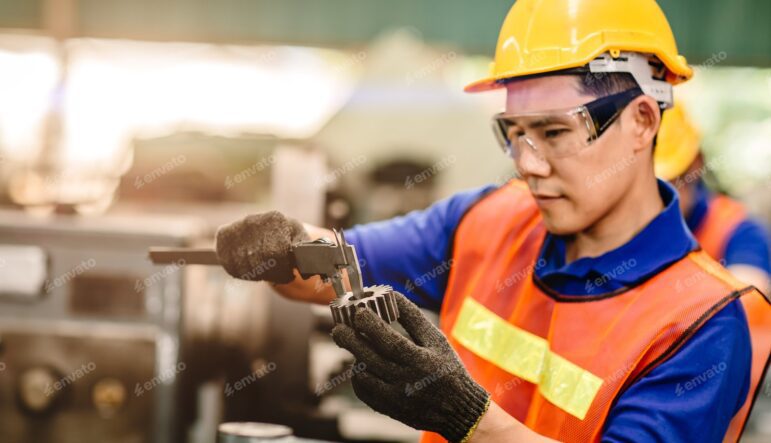Home / Blog Posts / Safety Measures in Your Workplace
Safety Measures in Your Workplace
In today’s rapidly evolving industrial landscape, ensuring the safety and well-being of workers has become an indispensable priority. As industries continue to flourish, it becomes imperative to implement effective safety measures that protect employees
Introduction:
Safety Measures in Your Workplace
In today’s rapidly evolving industrial landscape, ensuring the safety and well-being of workers has become an indispensable priority. As industries continue to flourish, it becomes imperative to implement effective safety measures that protect employees from potential hazards and mitigate the risks associated with their respective work environments. This classic essay aims to explore three crucial aspects of safety measures in industries: protective equipment for workers’ safety, regular inspection and maintenance of machinery, and comprehensive training on safety protocols and procedures.
Firstly,
providing appropriate protective equipment plays a pivotal role in safeguarding workers’ physical integrity. Whether it be helmets, gloves, goggles, or respiratory masks, these tools act as a shield against potential accidents or exposure to hazardous materials. By investing in high-quality protective gear tailored to specific job requirements, employers demonstrate their commitment towards employee welfare.
Secondly,
regular inspection and maintenance of machinery are essential for identifying potential faults or malfunctions that could compromise worker safety. Routine checks not only ensure the proper functioning of equipment but also prevent accidents caused by faulty components. By adhering to a strict maintenance schedule and promptly addressing any identified issues, industries can minimize workplace hazards significantly.
Lastly,
comprehensive training on safety protocols and procedures is crucial for enhancing worker competence and awareness regarding potential dangers within their work environment. Through extensive training programs that cover emergency response mechanisms, hazard identification techniques, and safe operating practices; organizations empower their workforce with the knowledge necessary to navigate hazardous situations confidently.
In conclusion,
prioritizing worker safety is not only ethically responsible but also
economically beneficial for industries. By implementing robust protective equipment policies, regularly inspecting machinery for faults or defects, and providing comprehensive training on safety protocols; employers create an environment where employees feel valued while mitigating risks associated with workplace accidents.


Protective Equipment For Workers’ Safety:
In the realm of worker safety, ensuring the well-being of employees is paramount. One crucial aspect that must be considered is the provision of adequate protective equipment. The utilization of protective gear in various industries serves as a shield against potential hazards and minimizes the risk of occupational accidents. In my industry, namely manufacturing, safety measures are indispensable to safeguard workers from potential harm or injury. The introduction of robust protective equipment guarantees a safer work environment for employees while simultaneously enhancing productivity and efficiency.
Firstly,
it is imperative to prioritize the implementation of personal protective equipment (PPE) such as helmets, goggles, gloves, and masks. These essential items act as an impenetrable fortress against hazardous materials and airborne particles that may pose health risks to workers. For instance, in a manufacturing setting where heavy machinery is operated regularly, helmets provide vital protection against falling objects or head injuries that may occur due to sudden accidents or mishaps. Similarly, goggles shield workers’ eyes from debris or harmful chemicals that could potentially impair vision permanently.
Moreover,
gloves play a pivotal role in safeguarding workers’ hands from cuts and burns when handling sharp tools or working with heated substances like molten metal. Without proper hand protection measures in place, employees would be exposed to severe injuries and detrimental health conditions that could adversely affect their livelihoods.
Furthermore,
respiratory masks are indispensable when dealing with toxic fumes or dust particles generated by certain industrial processes. These masks not only prevent inhalation of harmful substances but also alleviate respiratory disorders caused by prolonged exposure to hazardous environments.
Additionally,
it is essential to incorporate specialized safety clothing into our industry’s safety measures. Flame-resistant clothing can protect workers from fires or explosions common in certain manufacturing settings involving combustible materials like chemicals or gases. This type of attire acts as a barrier between the worker’s skin and flames by resisting ignition and reducing burn injuries significantly.
Prioritizing worker safety through the provision of adequate protective equipment is vital in any industry. In the manufacturing sector, where potential hazards are prevalent, robust safety measures become even more critical. The implementation of personal protective equipment such as helmets, goggles, gloves, and masks shields workers from various risks and ensures their well-being. By safeguarding employees’ physical health and minimizing the likelihood of accidents or injuries, these safety measures contribute to a safer work environment that ultimately enhances productivity and efficiency in the industry.
Regular Inspection And Maintenance Of Machinery:
Regular inspection and maintenance of machinery is of utmost importance in ensuring the safety of workers within any industry. Neglecting this crucial aspect could lead to catastrophic accidents, causing harm to employees and potentially damaging the reputation and profitability of a company. To avoid such dire consequences, it is imperative to implement stringent safety measures that prioritize the regular examination and upkeep of machinery.
Reasons For Regular Inspection
One primary reason for maintaining regular inspection schedules is to identify potential hazards or malfunctions before they escalate into major problems. By conducting routine checks, any signs of wear and tear can be spotted early on, allowing for timely repairs or replacements. This proactive approach not only prevents costly breakdowns but also minimizes the risk of accidents occurring due to faulty equipment. A malfunctioning machine can pose various dangers, including sharp edges that may cause lacerations or uncontrolled movements leading to crushing injuries. Therefore, by diligently inspecting machinery at regular intervals, businesses demonstrate their commitment towards creating a safe working environment.
Moreover,
regular maintenance ensures that machines operate at their optimal efficiency levels. Well-maintained equipment tends to function smoothly without unexpected disruptions or sudden failures. This reliability significantly reduces the chances of accidents caused by sudden stops or unpredictable behavior from malfunctioning machinery.
Furthermore,
efficient machines contribute to increased productivity as they operate at peak performance levels consistently. By investing time and resources in regular inspections and maintenance routines, industries can enhance both worker safety and overall operational efficiency.


Always Hire a Professionals
No matter urgent any electrical repairs seem, it’s never okay to attempt to handle them on your own. Trying to take care of electrical problems without professional training is extremely dangerous. If you or someone else aren’t hurt during your attempt, there’s still a chance that you’ve left something undone that poses a huge risk to you, your home, or your family.
In fact,
faulty electrical wiring is the number one cause of house fires in the United States, according to the National Fire Protection Agency. So in order to make sure that your home is safe, always rely on a professional for any electrical services.
When searching for a reliable electrician, call us at +233 24 415 1232 We specialize in electrical repairs, indoor and outdoor lighting installations, panel upgrades, and even hot tub wiring!
Additionally,
adhering to scheduled inspections helps companies comply with legal regulations governing workplace safety standards. Many jurisdictions require businesses to maintain records documenting routine inspections and maintenance activities carried out on their machinery. Failure to meet these legal obligations can result in severe penalties or even litigation in case an accident occurs due to negligence on part of the employer. Compliance with regulations not only ensures protection against legal repercussions but also reflects a company’s commitment towards prioritizing employee well-being.
Maintenance
Regular inspection and maintenance are vital safety measures that must be implemented in any industry. The early detection of potential hazards, enhanced efficiency, and compliance with legal requirements are all benefits derived from this practice. By prioritizing the well-being of their workers and protecting their reputation, businesses can create a safer work environment while simultaneously promoting productivity and profitability.
Comprehensive Training On Safety Protocols And Procedures:
A paramount aspect of ensuring a safe working environment in any industry is providing comprehensive training on safety protocols and procedures. This entails equipping employees with the knowledge and skills necessary to identify potential hazards, mitigate risks, and respond effectively in emergency situations. By implementing rigorous training programs, organizations can cultivate a culture of safety consciousness among their workforce, thereby reducing the likelihood of accidents or injuries.
First Step
The first step in this comprehensive training process involves conducting thorough assessments to identify specific safety needs within the industry. By analyzing past incidents and near misses, employers can gain valuable insights into the common risks faced by workers. This information serves as a foundation for designing tailored training modules that address these risks directly. For example, in manufacturing industries where heavy machinery is used, employees would receive specialized instruction on machine operation and maintenance to minimize accidents.
Safety Training Programs,
To enhance the effectiveness of safety training programs, it is crucial to adopt innovative instructional techniques that engage employees actively. Traditional lectures alone may not suffice in capturing workers’ attention or fostering long-term retention of vital safety information. Therefore, incorporating interactive elements such as hands-on simulations or virtual reality exercises can significantly improve learning outcomes. These methods immerse employees in realistic scenarios where they must apply safety protocols under simulated pressure situations, thereby enhancing their ability to respond appropriately when faced with real-life emergencies.
Furthermore,
regular refresher courses are essential to ensure that knowledge remains up-to-date and skills remain sharp over time. Industries experience constant changes due to technological advancements or evolving regulations; thus, ongoing training prevents complacency and reinforces best practices consistently. Employers should also encourage open communication channels between management and workers so that employees feel comfortable reporting unsafe conditions or suggesting improvements to existing safety measures.
Safety Protocols
Comprehensive training on safety protocols and procedures plays a pivotal role in establishing robust safety measures within an industry. By identifying specific risks through thorough assessments, designing engaging instructional techniques with interactive elements like simulations or virtual reality exercises, implementing regular refresher courses while promoting open communication, organizations can empower their workforce to maintain a safe and secure working environment. Through these measures, accidents and injuries can be minimized, productivity can be enhanced, and employees can feel confident in their ability to handle potential hazards effectively.
Conclusion:
In conclusion, the safety measures that should be put in place in any industry are of paramount importance. The protection of workers’ safety through the provision of appropriate protective equipment is crucial to prevent accidents and minimize potential hazards. By ensuring that workers have access to high-quality protective gear such as helmets, goggles, gloves, and earplugs, employers can significantly reduce the risk of injuries and create a safer work environment.
Maintenance of Machinery,
Regular inspection and maintenance of machinery is another essential safety measure that must be implemented across industries. This practice helps identify any faults or malfunctioning components in equipment before they lead to accidents or breakdowns. By conducting routine inspections, companies can promptly address any issues and repair or replace faulty parts, thereby ensuring the smooth functioning of machinery while safeguarding workers’ wellbeing.
Comprehensive Training,
Equally important is providing comprehensive training on safety protocols and procedures to all employees. Through proper education and training programs, workers can develop a deep understanding of potential hazards within their workplace and learn how to mitigate risks effectively. This includes knowledge about emergency response procedures, fire safety measures, proper handling techniques for hazardous substances, and overall awareness regarding safe work practices.
Promoting a Safe Working Environment,
By implementing these safety measures in industries across the board, employers not only fulfill their legal obligations but also demonstrate a genuine commitment towards prioritizing worker well-being. Ultimately, promoting a safe working environment not only protects employees from harm but also enhances productivity by fostering a sense of security among workers. Therefore, it is imperative for companies to invest time, effort, and resources into implementing these measures effectively for the benefit of all stakeholders involved.
Our electrical repair technicians know what a hassle any electrical problems can be, which is why we’ll always respond to any requests for service as quickly as possible. And because all of our technicians are licensed, background checked, and professionally trained, you’re guaranteed to receive the best quality service and workmanship available when you call us. We can assist with all your electric needs including:
- Generator Installation and Repair Services
- Best Industrial Electrical Automation services
- Best Electric Motor Rewinding Services
- Earthing Installations and Upgrades Services
- Electro-Mechanical services
- Lighting Installation
- Residential Electrical Installation Services
- Electrical Panel Replacement
- LED Lighting
- Industrial electrical Installation Services
- Electrical Troubleshooting and Repairs
- Professional Electrical Support and Training Services
- Electrical Wiring Design and Engineering Services
- Electrical Energy and Power Auditing Services
- Distribution Panels Fabrication and Upgrades Services
- Professional electrical contractors in Ghana
- Commercial electrical Installation Services
- Licensed Electricians in Ghana
- Home Wiring
- Consulting and Advisory services
- Electrical Wirings Testing and Inspection Services
- Wiring Replacement and Upgrade Services
- Residencial, commercial and Industrial wiring Services
Search
Electrical Wiring Contract – What Can Go Wrong or Right
Generator Service Experts in Ghana, When the Lights Go Out – Mega Solution Electrical to the Rescue!
Categories
- Certified Electricians Ghana
- Commercial Electrical Services
- Commercial Installation
- Consulting Services
- Contracting Services
- Control Systems
- Distribution Panel Fabrication
- Earthing Installations
- Earthing Maintenance
- Electrical Consulting
- Electrical Contractors
- Electrical Installation Ghana
- Electrical Maintenance Ghana
- Electrical Repair Ghana
- Electrical Safety
- Electrical Services
- Electrical Training
- Energy Auditing
- Engineering Services
- Generator Installation
- Generator Load Testing
- Generator Repair
- Generator Services
- Generator Servicing Ghana
- Ghana Electrical Licensing
- Ghana Electrical Services
- Industrial Electrical Services
- Industrial Installation
- Industrial Services
- Industrial Solutions
- Installation Services
- Licensed Electricians
- Motor Rewinding
- Residencial Installation
- Residential Electrical Service
- Residential Services
- Uncategorized
Archive
| M | T | W | T | F | S | S |
|---|---|---|---|---|---|---|
| 1 | ||||||
| 2 | 3 | 4 | 5 | 6 | 7 | 8 |
| 9 | 10 | 11 | 12 | 13 | 14 | 15 |
| 16 | 17 | 18 | 19 | 20 | 21 | 22 |
| 23 | 24 | 25 | 26 | 27 | 28 | |
Tags
- Commercial Electrical Contracting
- Commercial Electrical Installation Ghana
- Commercial Electrical Repair
- Commercial Electrical Wiring
- Commercial generator maintenance
- Earthing Installations and Upgrades Services
- Electrical
- Electrical Automation Services
- Electrical CAD Design
- Electrical Company
- Electrical Contractors in Ghana
- Electrical Energy and Power Auditing Services
- Electrical Wiring Design and Engineering Services
- Electrical Wiring Design Ghana
- Electrical Wiring Upgrades
- Electricians
- Electricians in Ghana
- Electric Motor Repair
- Electric Motor Rewinding
- Electric Motor Rewinding Services
- Factory Electrical Installation
- Generator experts in Ghana
- Generator installation
- Generator Installation and Repair Services
- Generator Installation Ghana
- Generator Maintenance Contracts
- Generator Repairs
- Generator Repair Services
- Generator Repair Services Ghana
- Generators
- Industrial Electrical Contracting
- Industrial Electrical Installation Ghana
- Industrial Electrical Maintenance
- industrial Electrical Repair
- Industrial Electrical Wiring
- Industrial generator repair services
- Installations
- Licensed Electrical Contractors Ghana
- Licensed Electricians in Ghana
- Residential Electrical Installation Ghana
- Residential Electrical Maintenance
- Residential Electrical Repair
- Residential Electrical Wiring
- Residential standby generator repair
- Wiring Installation Design
Prayer Warfare




Hi, this is a comment.
To get started with moderating, editing, and deleting comments, please visit the Comments screen in the dashboard.
Commenter avatars come from Gravatar.